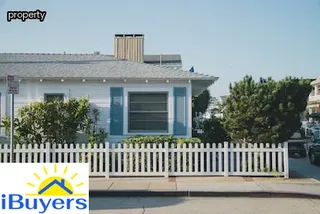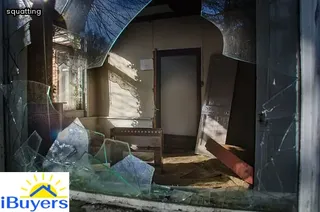In Delaware, there are important distinctions between squatting and trespassing that must be taken into consideration when exploring squatter's rights. Squatting is the practice of occupying an abandoned or unoccupied space without permission from a legal owner or landlord, whereas trespassing is the unlawful entering of another’s property without authorization.
While both activities are considered illegal in Delaware, squatting carries fewer penalties than trespassing, as the former generally involves an intent to occupy for residential purposes rather than commit theft or vandalism. In general, it is more difficult to charge someone with squatting versus trespassing, as it requires proof that the individual had knowledge of the legal ownership of the property in question.
Additionally, laws regarding squatting vary from state to state and localities may have their own regulations pertaining to such matters. As such, individuals seeking to explore squatter's rights in Delaware should familiarize themselves with both federal and local regulations before taking any action.

Property owners in Delaware are subject to certain requirements pertaining to adverse possession, or squatting. Squatting is the act of living in an abandoned or unoccupied space without permission from the property owner.
In Delaware, a squatter must be in continuous possession of the property for at least 20 years before they can claim it as their own. The squatter must also maintain and improve the property during this period, have exclusive possession over it and pay taxes on it.
Furthermore, they must make their presence known to the public by using the property openly and as if they have full title to it. If these criteria are met, a squatter may gain title rights to a property through adverse possession.
Property owners should be aware of these laws so that they can take action if someone attempts to unlawfully take control of their land.
Exploring “color of title” claims in Delaware is an important part of understanding squatters' rights. Color of title is a legal term that describes a situation in which someone has possession of real estate based on an invalid document, such as a deed or other instrument.
In Delaware, color of title claims are governed by the doctrine of adverse possession, which states that if a person has been living on and using property for more than twenty years without permission from the rightful owner, then he or she may be able to claim squatter's rights. This means that even if the person does not have valid legal documents proving their ownership, they may still be entitled to certain protections provided by law.
It is important for those who wish to establish squatter's rights in Delaware to understand how color of title claims work and how they can impact their ability to legally possess property. Additionally, it is essential for individuals to research local housing laws and regulations that may affect their ability to claim these rights.
Understanding these concepts will help ensure that squatters are able to successfully assert their rights and protect themselves from potentially harmful situations involving property disputes.

When it comes to protecting your property from unwanted squatters, there are strategies you can use to ensure that your rights and regulations are being followed. First, make sure you are familiar with the housing laws and regulations in Delaware regarding squatting.
Secondly, be aware of any signs of potential squatting activity on your property such as unsecured doors or windows, or changes to the structure of the building. If you suspect someone is occupying your space without permission, contact local law enforcement immediately.
Additionally, ensure that all vacant properties on your land have a posted “No Trespassing” sign visible from the street. Finally, consider installing motion-activated lights at night to deter squatters from entering your property and always keep records of any past tenants in case they attempt to claim squatter’s rights in the future.
Taking these steps will help protect your rights as a homeowner and reduce the chances of having unwanted squatters living on your property.
Squatting in Delaware is a complex and often confusing process, so it's important to understand your rights as a squatter. Under Delaware law, squatters are not considered to be tenants, nor do they have the same protections that tenants do under the law.
Squatters must also comply with state regulations for safety and health standards. In order to stay on a property without being evicted, squatters must prove that they have been living there continuously for at least six months and provide evidence of their physical presence on the property such as utility bills or other documents.
Additionally, it is important for squatters to be aware of local zoning laws as some areas may prohibit any type of occupancy without permission from the owner or landlord. It is also important to remember that if you are asked to leave by the property owner or landlord you must comply with their request.
Lastly, it is important to note that even though squatters may not have tenant rights they are still protected under the law including anti-discrimination laws and housing codes which provide basic standards for living conditions in regards to safety and health.

In Delaware, squatter's rights are defined as a legal concept that grants certain rights to individuals who occupy and use a property without the permission of its rightful owner. Under Delaware law, a squatter is someone who occupies an abandoned or unoccupied building or land without any legal authorization to do so.
Squatters may also be considered individuals who have moved into a property due to a tenant-landlord situation in which they reasoned they had been wrongfully evicted or were never given proper notice to vacate. It is important to note that squatters do not have ownership over the property they reside on, and will not be granted tenancy rights unless they can prove their claims in court.
Furthermore, squatters are liable for paying rent if they have been occupying the property for more than two months prior to eviction proceedings. In addition, squatters must also adhere to applicable zoning laws and pay taxes applicable to their residence as well as any other statutory obligations that come with living in a particular area.
Navigating Adverse Possession Laws in Delaware can be daunting. Squatters' rights, or the right to occupy property without a traditional lease, vary greatly from state to state.
In Delaware, the most important factor in understanding and navigating adverse possession laws is knowing the definition of “adverse possession” according to Delaware law. Adverse possession, under Delaware statutes, means that an individual occupies a piece of property openly and notoriously, with exclusive possession and control for at least 20 years.
This individual must also have paid all applicable taxes on the property during this time period. Additionally, the occupant must have acted as if they were the true owner of the property for those 20 years without interruption or dispute from anyone else claiming ownership.
If these conditions are met, then you may be able to claim squatter's rights under Delaware law. Furthermore, it is important to understand how these laws affect your rights as a squatter as well as what actions you might take should an issue arise regarding your occupancy.
Finally, familiarizing yourself with other housing laws and regulations in Delaware can help ensure that you are complying with all guidelines and avoiding any potential conflict with other parties involved in your housing situation.

Color of title is an important factor when considering property ownership rights in Delaware. It dictates who owns a piece of land and any structures that may be on it, and can even influence taxation, zoning regulations, and the ability to transfer property.
Color of title refers to the evidence of ownership of a particular piece of land. If a person has good color of title, this means that there is ample proof of their ownership, such as a deed or other document.
Squatters may claim title to a piece of property if they have been living on it for long enough, but such claims will only hold up if they have good color of title. This means that the squatter must be able to prove that they are occupying the property legally with proper documentation.
Knowing how color of title can affect one's legal standing with regards to squatting can help Delaware residents understand their rights when it comes to squatting and other forms of housing laws and regulations.
Removing an unwanted squatter from your property can be a difficult and complicated process. Depending on the laws and regulations in Delaware, it may require taking legal action for eviction.
To begin, it is important to understand what qualifies as a squatter in Delaware and the legal steps one has to take in order to remove them. Squatters are defined as people who take up residence in a property without permission or a lease agreement, whether they are paying rent or not.
As such, they do not have any rights as tenants and their presence on the property is considered illegal. In order to evict them, you must first provide written notice that they are no longer welcome on the premises and must leave within a certain amount of time.
If they fail to comply with this notice, you can then file an eviction lawsuit with the court which will require you to appear before a judge for an eviction hearing. The court will consider both sides of the case and then decide whether or not the squatter should be removed from your property.
If granted an eviction order by the court, you can then proceed with having law enforcement officers help remove them from your premises if necessary. It is important to note that while it may seem daunting, there are many resources available to help guide you through this process including lawyers and housing advocates who specialize in squatting laws in Delaware.

If you are a homeowner living in Delaware, it is important to be aware of your rights when it comes to protecting yourself and your property from squatters and trespassers. To start, familiarize yourself with the state’s laws by researching what constitutes trespassing, as well as any local regulations that may apply.
Make sure you are clear on the difference between a squatter and a tenant, so that you can be prepared if an unauthorized person attempts to occupy your home or land. If you do find someone attempting to occupy without permission, contact the police immediately for assistance.
You should also post “No Trespassing” signs around your property and keep the area well-lit at night. Additionally, take steps to secure your property such as installing motion sensor lighting or alarm systems.
Finally, always make sure that all doors and windows are properly locked before leaving your home unattended for extended periods of time. Taking these precautions will help protect your home from squatters and trespassers in Delaware.
Squatting, or occupying a vacant property without permission of the owner, is a complex legal issue that varies from one state to the next. Delaware has specific laws and regulations in place governing squatters' rights, which differ from other states.
While many states do not recognize squatters' rights at all, Delaware allows squatters to file an action in court to claim title over the property they occupy. This is known as "adverse possession," and it requires the squatter to meet certain criteria in order to be successful.
The squatter must have been openly living on the property for a long period of time (often more than 20 years) and must have made consistent improvements and repairs to the property during this time. The squatter must also pay all necessary taxes on the property and prove that he or she has made a good faith effort to contact the owner of the property but has been unsuccessful in doing so.
These requirements demonstrate that Delaware takes its housing laws seriously and makes sure any claims of squatters' rights are thoroughly evaluated before a decision is made.
If you are a property owner in Delaware and have a squatter on the premises, there are a few steps that should be taken to legally remove them. The first step is to contact law enforcement and file a criminal report.
This can help establish that the squatter has no ownership of the property, which is an essential part of removing them. Additionally, state laws may require landlords to provide written notice of eviction to squatters and give them an opportunity to leave voluntarily.
After providing this notice, if the squatter still refuses to vacate the premises, landlords can file eviction paperwork with the court. This will allow for their removal in accordance with state laws and regulations concerning housing and tenancy.
Ultimately, it is important for landlords to understand their rights when it comes to evicting squatters in Delaware so they can protect their property while abiding by all applicable laws.

The law of adverse possession in Delaware allows a squatter to become the rightful owner of a property if they have been living in it for a specified period of time and meet certain criteria. Adverse possession is based on the idea that someone can acquire title to land through their actual, open, notorious, exclusive, and hostile possession over a period of time.
In Delaware, this period is 20 years for land registered under Torrens title and 30 years for unregistered land. To establish adverse possession in Delaware, the squatter must prove that they have used the property exclusively for at least 20 or 30 years; that the use was continuous and uninterrupted; that it was made with either knowledge or acquiescence of the true owner; and that it was open and notorious so that an inspection by another would reveal it.
Squatters must also pay all taxes due on the property during their occupancy to maintain their claim. Ultimately, squatters should be aware of the potential legal risks involved in attempting to acquire property through adverse possession in Delaware and should consider consulting an attorney with experience in real estate law before doing so.
Squatting, or occupying property without the permission of the owner, is a legal issue that has recently become a major issue in Delaware. Although squatting is illegal in the state, there are certain laws and regulations that protect “squatters” from being evicted from a property before they have had time to establish their occupancy.
Under Delaware's squatter's rights law, squatters may remain on a property for up to one year before being evicted by the rightful owner. This means that if a squatter can prove they have been living on a property for at least one year, then they may be able to claim ownership of it.
This minimum period of occupation is known as the "statute of limitations" and this period typically lasts an absolute minimum of twelve months. In order to claim squatters rights in Delaware, the squatter must demonstrate that they have been occupying the property continuously for this period of time.
Squatting, or taking up residence in an abandoned property without the owner’s permission, is illegal in Delaware. Squatters have no legal right to remain in the property, and may be evicted at any time by law enforcement.
In Delaware, squatters are subject to criminal prosecution for trespassing and other charges under state law. The penalties for squatting can include fines, imprisonment and even deportation in some cases.
For those who are interested in exploring their rights as a squatter in Delaware, it is important to understand the state’s laws and regulations around this issue. In general, squatters have no legal rights to occupy or use abandoned properties without the owner’s permission.
However, certain local governments may provide limited protections to squatters if they meet certain criteria such as being disabled or elderly. It is also important to note that there are various housing laws and regulations that may affect how a squatter can claim ownership of an abandoned property.
Ultimately, it is important for anyone considering becoming a squatter in Delaware to understand the applicable laws before taking any action.